Poging GOUD - Vrij
What Makes A Work Of Art Great?
Philosophy Now
|August/September 2025
Each answer below receives a book. Apologies to all the entrants not included.
-
Great art must score highly on four measures: emotional impact (visual and visceral); technique (masterful and harmonious); concept (relevant or timeless); and originality (of medium, subject, or treatment).
There are many ways each of these criteria can be satisfied, both subjectively and objectively, but the media are open-ended. One can build great architecture; paint on canvas or a wall; sculpt wood, rock, or beach; project an image on a building or the Moon; make an installation; stage a happening... The media extend to literature, music, stage, and film. Even engineering is not entirely bound to functionality. A ship, aircraft, or bridge can satisfy all the 'great art' criteria, even if stirring emotion was no part of the designer's intention.
To be art, a work has to be made deliberately by a person (assuming AI art is necessarily derivative), and witnessable in principle by anyone. To have meaning it needs a context wider than its content. An abstract canvas needs a perceptive apparatus. A painting or photograph whose natural subject has been carefully selected owes to the physical setting and human expectations. Does this mean there are boundaries to what anyone should consider art? The way art has developed historically, though decoration, statuary, performance, religious scenes, portraiture and landscapes, to conceptual art - supports this. But boundaries evolve, and then the question is, how far? An entertainment in sixteenth century Paris involved collecting cats in a bag, hoisting them up in a public square, and lighting a fire underneath. Was that
Dit verhaal komt uit de August/September 2025-editie van Philosophy Now.
Abonneer u op Magzter GOLD voor toegang tot duizenden zorgvuldig samengestelde premiumverhalen en meer dan 9000 tijdschriften en kranten.
Bent u al abonnee? Aanmelden
MEER VERHALEN VAN Philosophy Now

Philosophy Now
Pharmaco-Metaphysics?
Raymond Tallis argues against acidic assertions, and doubts DMT discoveries.
7 mins
August/September 2025
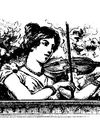
Philosophy Now
Nine Spiritual Exercises
Massimo Pigliucci explains how to get Philo-Sophical.
3 mins
August/September 2025

Philosophy Now
Books
We follow mammal's search for meaning, as Mark Vorobej savages John Gray's book of impractical cat philosophy, while B.V.E. Hyde ponders the point of Jordan Peterson. In Classics, Hilarius Bogbinder reviews Plato's Republic.
21 mins
August/September 2025
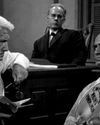
Philosophy Now
The Centennial of the Scopes ‘Monkey’ Trial
Tim Madigan on the creation and the evolution of a legend.
14 mins
August/September 2025
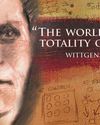
Philosophy Now
Gödel, Wittgenstein, & the Limits of Knowledge
Michael D. McGranahan takes us to the edge of language, mathematics and science.
10 mins
August/September 2025
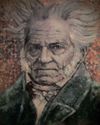
Philosophy Now
Weltschmerz and the World
Ian James Kidd takes a realistic and global view of the history of pessimism.
10 mins
August/September 2025
Philosophy Now
What Makes A Work Of Art Great?
Each answer below receives a book. Apologies to all the entrants not included.
16 mins
August/September 2025
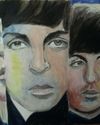
Philosophy Now
The Beatles: Nothing is Real
Clinton Van Inman gets back to the psychedelic Sixties.
4 mins
August/September 2025

Philosophy Now
The Post-Truth Kerfuffle
Susan Haack, who is Distinguished Professor in the Humanities, Cooper Senior Scholar in Arts & Sciences, Professor of Philosophy, and Professor of Law, at the University of Miami, talks with Angela Tan about how and when we know.
11 mins
August/September 2025
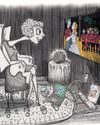
Philosophy Now
A Crisis of Attention
Paul Doolan attends to our culture of attention demanding.
13 mins
August/September 2025
Listen
Translate
Change font size
